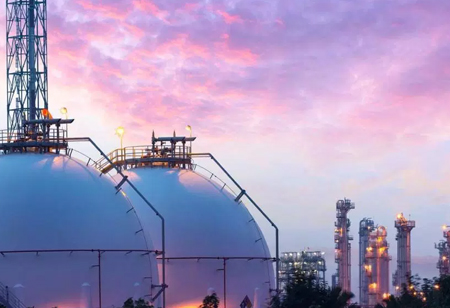THANK YOU FOR SUBSCRIBING
IIoT is the Future of Oil and Gas Industry
The amalgamation of technological devices in oil and gas will touch almost every leg of the industry’s supply chain, from operations to customer engagement.

By
Apac CIOOutlook | Friday, July 12, 2019
Stay ahead of the industry with exclusive feature stories on the top companies, expert insights and the latest news delivered straight to your inbox. Subscribe today.
The amalgamation of technological devices in oil and gas will touch almost every leg of the industry’s supply chain, from operations to customer engagement. It is a major opportunity to modify the entire legacy of the industry as well as brings oil and gas to the field of competition.
FREMONT, CA: IoT devices have brought about changes in customer’s everyday lives, but the oil and gas industry has lagged notably, and it looks like the Industrial Internet of Things (IIoT) is the future of it.
The oil and gas industry is facing challenges because of the antiquated and inefficient approach, unlike other companies who take a step forward to maintain assets and collect data. There are different ways in which IIoT will revolutionize the oil and gas industry soon:
Better Functionality:
Technologies like big data analysis can help the industry to avoid losses as well as assist the companies in managing their assets and using their conclusions to optimize production, along with remove visibility. By making use of the features of IIoT can minimize troubleshooting time from days to minutes, which allows the company to spend more time on other operational aspects of the business.
Check Out: Top Oil and Gas Technology Companies
Profits:
The oil and gas industry should take the opportunity of investing in innovative technologies, as the profit margins have tightened with low cost of the utilities. Nothing can be better than the financial gains of cost reduction and ample time for the industry to become competitive.
Real-Time Information:
In the oil and gas industry, big data is not an alien technology as it is significant for the success of the sector, to be precise. The most valuable traits in the industry are efficiency and accuracy, and minimal improvement in performance can make a notable economic gain. An advantage of the oil and gas companies is that they know the ability of their pump-off controllers that talk about legacy modus operandi to participate in the IoT and benefit from the current web services.
Safety:
Safety is the primary industry concern, and IIoT can decrease the risk taken by recognizing the potential issues before they turn into actual safety hazards. Free use of IIoT integration also lessens the travel and potentially dangerous work for the employees.
Green Footprint:
The IIoT makes the functioning easy starting from increasing efficiency to narrowing safety risk and reducing travel, along with significantly reducing the environmental impact of the oil and gas industry. Lesser usage of energy, avoiding oil spills, and releasing fewer carbons are essential for oil and gas to pay attention to IIoT, besides clearer monitoring of energy and resource usage.
Check Out : Review | CIOReview





